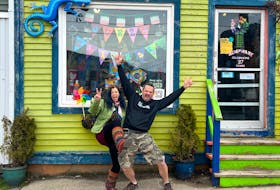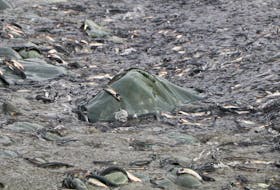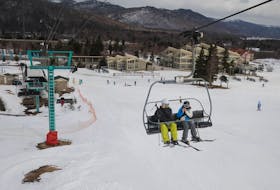The story is similar in most places — hotels, bed and breakfasts and other traditional operators in the accommodations sector complain the online marketplace for short-term rentals is not regulated to the same extent they are, leaving them disadvantaged.
Governments in Newfoundland and Labrador, Nova Scotia and Prince Edward Island have heard those complaints and are dealing with them, though no two plans are entirely alike.
Nova Scotia and Newfoundland and Labrador both introduced some legislative changes earlier this year focused on registering operators with the province. In Nova Scotia, a new rule effective April 1 requires all roofed spaces offering accommodations for 28 days or less to register with the province, unless it’s within an operator’s primary residence. The new Tourist Accommodation Registration Act, which replaced the Tourist Accommodations Act, allows government to fine operators that fail to register $1,000 per day, to a maximum amount of $7,500 annually.
As of Aug. 15, there were 557 registrations for 587 properties in Nova Scotia and 8,543 rooms registered.
“We are working with Airbnb, and the hosting platform is planning an email campaign to all of their Nova Scotia hosts, educating them on the new legislation and the requirement to register,” a spokeswoman for the Department of Business told The Telegram in an emailed statement.
The department started accepting complaints about unregistered properties in mid-July through Service Nova Scotia. Service Nova Scotia will then contact the property owner to inform them of the requirement to register. For now, government is holding off on issuing fines.
“While fines are an option under the legislation, we are first working with the tourism industry and short-term tourist accommodation operators to raise awareness of the legislation and requirement to register their properties,” the spokeswoman said.
Legislative amendments
Similarly, Newfoundland and Labrador overhauled its legislation to address industry concerns, amending its Tourism Establishment Act and Regulations by modernizing the definition of tourism establishment, eliminating the old licensing requirement and setting up a new requirement for accommodations to register with the province.

In a news release announcing the changes in July, Tourism Minister Bernard Davis said, “We feel the legislation should apply equally to short-term accommodations, as the time to level the playing field is now.”
The province is now in the process of engaging tourism and hospitality stakeholders to address short-term accommodations. An online questionnaire has been set up and Davis’ department is also accepting written submissions. The consultation process is set to wrap up Sept. 25.
In a statement released to The Telegram, a department spokesman said the consultation will serve as the “next step” towards developing legislation to address the realities faced today in the tourism sector.
“One of the most important phases in amending the Tourism Establishment Act will be listening to the various community, industry, and private stakeholders,” the spokesman said.
On the island
Prince Edward Island, unlike the other two provinces, has not been active legislatively in dealing with short-term rentals. That’s because short-term accommodations on the island have been required to be licensed with the province since 1996. Tourism PEI issues the licence. A property must pass an inspection and water test if it’s not on a municipal system. Occupancy reports must also be filed within 10 days of every month.
“We are considered best practice and have provided advice on licensing to our provincial counterparts, as well as international destinations over the years,” a spokeswoman for Tourism P.E.I. told The Telegram in an emailed statement.

Corryn Clemence, CEO of the Tourism Industry Association of P.E.I., has worked closely with the province’s tourism sector for over a decade. She said there has been considerable growth in short-term accommodations on the island in recent years.
“The feedback we’ve heard from the industry and from our members is certainly the concern about regulating them and licensing short-term rentals to assure that quality visit for our guests,” Clemence said.
Like Nova Scotia, P.E.I. can also fine operators of illegal accommodations. Its regulatory affairs division monitors online marketplaces like Airbnb and contacts operators, some of whom might not be aware they need to be licensed. According to Tourism P.E.I., the last fine was issued in 2019.
“I think Prince Edward Island has been unique in the sense that we are a contained province and it’s a bit easier for the tourism department to monitor who is out there with short-term rentals,” said Clemence, who went on to credit Tourism P.E.I. for being proactive on the issue. “We know that there’s probably always some slippage, and I think a portion of that is people getting into the short-term rental business and maybe not understanding that there is some licensing requirement, or not knowing where to go for those sorts of things.
“I think there’s two facets that we have to consider. We need to communicate better what those licensing requirements are moving forward as we have more short-term rentals on the market. And to make sure the requirements and the standards are where they need to be.”









